Kuxa Kanema: The Birth of Cinema is a portugais film of genre Documentary
Kuxa Kanema: The Birth of Cinema (2003)
Kuxa Kanema: o nascimento do cinema
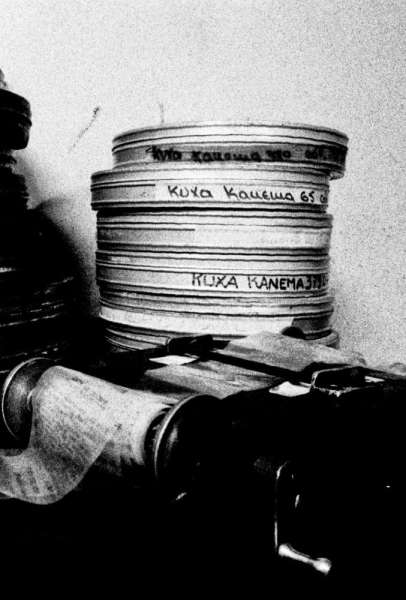
If you like this film, let us know!
- Infos
- Casting
- Technical infos
- Photos
- Videos
- Film quotes
- Characters
- Music
- Awards
Length 52minutes
OriginPortugal
Genres Documentary
Themes Films set in Africa, Documentary films about business, Documentary films about the film industry
Rating59%










Kuxa Kanema: The Birth of Cinema is a 2003 documentary by Margarida Cardoso on the National Institute of Cinema (INC), created by President Samora Machel following the 1975 independence of Mozambique.
At the time of independence, Mozambique lacked a national television network, so a newsreel program was the only way to reach the population through visual media. The first cultural act of President Machel’s government was the establishment of the Kuxa Kanema weekly newsreel program. The newsreels were shown in Mozambique’s relatively few cinemas in the 35mm format. In the rural areas, mobile units provided by the Soviet Union offered the newsreels in the 16mm format. Machel's government, however, did not finance or encourage the creation of a film industry designed strictly for entertainment value.
The film also details the struggle to get INC up and running: Mozambique had no film industry or film schools (Brazilian and Cuban instructors were flown in to offer on-the-spot educational training). The resulting newsreels were shot in black-in-white because color film was too expensive.
Machel's death in an airplane crash in 1986, coupled with guerrilla attacks launched by the apartheid governments of South Africa and Rhodesia that destabilized Mozambique to the point of civil war, helped to kill this program. Many of the cinemas in the cities were damaged in the civil war, while the rural presentations of Kuxa Kanema were cancelled due to the lack of safe passage along rural roads. By the end of the conflict, national television had been established and there was no call for a theatrical newsreel presentation.
Kuxa Kanema: The Birth of Cinema offers clips of rarely seen footage from the INC films. It also looks into the offer by French filmmaker Jean-Luc Godard to create a national independent television network.
Kuxa Kanema: The Birth of Cinema has played in film festivals and has been released on DVD.
Synopsis
En racontant l'histoire de l'Institut National du Cinéma (INC), de ses films et des gens qui lui sont liés, ce documentaire raconte aussi l'histoire d'une jeune nation africaine. Quel rôle le cinéma peut-il jouer dans la reconstruction des valeurs culturelles? Ou quel rôle peut-il jouer dans la destruction de ces valeurs? Après des siècles de colonisation, suivis d'années de guerre civile, de famine et de destruction, un pays tente de réfléchir sur son passé, reconstruire son identité et réclamer sa dignité.Comments
Leave comment :
Suggestions of similar film to Kuxa Kanema: The Birth of Cinema
There are 8974 with the same cinematographic genres, 2081 films with the same themes (including 11 films with the same 3 themes than Kuxa Kanema: The Birth of Cinema), to have finally 70 suggestions of similar films.If you liked Kuxa Kanema: The Birth of Cinema, you will probably like those similar films :
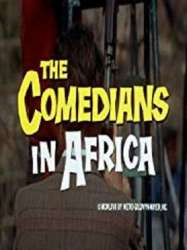
The Comedians in Africa (1967)
, 11minutesDirected by Peter Glenville
Origin USA
Genres Documentary
Themes Films set in Africa, Films about films, Documentary films about business, Documentary films about the film industry, Documentary films about films
Actors Lillian Gish, Elizabeth Taylor, Richard Burton, Alec Guinness, Peter Ustinov, Peter Glenville
Rating62%





This short documentary chronicles the difficulties encountered by the crew and cast while filming The Comedians on location in Africa's Dahomey (since renamed the Republic of Benin). Author Graham Greene and director Peter Glenville appear in the film, as do actors Richard Burton, Elizabeth Taylor, Alec Guinness, Peter Ustinov, Georg Stanford Brown, Roscoe Lee Browne, Paul Ford, Lillian Gish, James Earl Jones and Raymond St. Jacques.
 , 52minutes
, 52minutesOrigin France
Genres Documentary
Themes Films set in Africa, Documentary films about business, Documentary films about the film industry, Documentaire sur une personnalité
This documentary portrays a great Sudanese filmmaker, Gadalla Gubara (1920-2008), one of the pioneers of cinema in Africa. Through his works, Gadalla shows us a mysterious and misunderstood country, Sudan. Despite censorship and the lack of financial backing for over sixty years, he produced an independent and unique cinema in a country where freedom of expression is a rare luxury. This film follows the struggle of the man who received the Excellence Career Award at the 2006 African Academy Awards, Nigeria.

Nollywood Babylon (2009)
Origin Canada
Genres Documentary
Themes Films set in Africa, Documentary films about business, Documentary films about the film industry
Actors Lancelot Oduwa Imasuen, Osita Iheme, Chinedu Ikedieze, Omotola Jalade Ekeinde
Rating66%





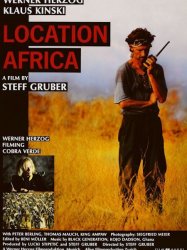
Location Africa (1987)
, 1h5Genres Documentary
Themes Films set in Africa, Films about films, Documentary films about business, Documentary films about the film industry, Documentary films about films
Actors Werner Herzog, Peter Berling, Thomas Mauch, Klaus Kinski
Rating67%





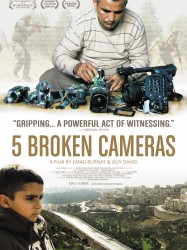
Five Broken Cameras (2011)
, 1h34Origin Israel
Genres Drama, War, Documentary, Crime
Themes Films set in Africa, Films about films, Films about religion, Documentary films about business, Documentary films about the film industry, Documentary films about law, Documentary films about war, Documentary films about historical events, Documentaire sur une personnalité, Documentary films about politics, Documentary films about religion, Political films, Films about Jews and Judaism, Documentary films about films
Rating78%





There are five cameras — each with its own story. When his fourth son, Gibreel, is born in 2005, self-taught cameraman Emad Burnat, a Palestinian villager, gets his first camera. At the same time in his village of Bil’in, the Israelis begin bulldozing village olive groves to build a barrier to separate Bil'in from the Jewish Settlement Modi'in Illit. The barrier's route cuts off 60% of Bil'in farmland and the villagers resist this seizure of more of their land by the settlers.
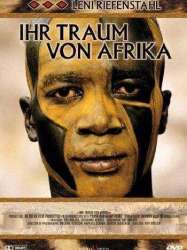 , 59minutes
, 59minutesGenres Documentary
Themes Films set in Africa, Documentary films about business, Documentary films about the film industry, Documentaire sur une personnalité
Actors Leni Riefenstahl
Rating67%





At the age of 97 Riefenstahl returns to Sudan for one final farewell to the Nuba that she lived with for 8 months and photographed and filmed extensively. Müller documents her return after 23 years away and her reaction to the collapsing culture that she once celebrated so avidly in her photographs.
 , 1h35
, 1h35Genres Documentary
Themes Films set in Africa, Films about films, Documentary films about business, Documentary films about the film industry, Documentary films about law, Documentary films about war, Documentary films about historical events, Documentaire sur une personnalité, Documentary films about politics, Political films, Documentary films about films

A People on the March (1963)
, 55minutesDirected by René Vautier, Ahmed Rachedi, André Dumaître
Origin Algerie
Genres War, Documentary, Historical
Themes Films set in Africa, French war films, La colonisation française, Films about terrorism, Documentary films about business, Documentary films about the film industry, Documentary films about law, Documentary films about war, Documentary films about historical events, Documentary films about politics, Algerian War films, Political films, Histoire de France
Rating36%





In 1962, René Vautier, together with some Algerian friends, organized an audiovisual formation center to encourage a "dialogue in images" between the two factions. A film was edited from that experience, but the French police partially destroyed it. The images that were saved represent an unprecedented historical document: They tell of the Algerian War and the history of the ALN (National Liberation Army), as well as showing life after the war and, particularly, the reconstruction of the cities and the countryside after the war of Independence.

Welcome to Nollywood (2007)
, 56minutesOrigin USA
Genres Documentary
Themes Films set in Africa, Documentary films about business, Documentary films about the film industry
Actors Izu Ojukwu
Rating70%






Marfil (2011)
, 30minutesGenres Documentary
Themes Films set in Africa, Documentary films about business, Documentary films about the film industry
The first filmmaker arrived in Equatorial Guinea in 1904. The last movie theatre closed in Malabo in the 1990s. In 2011, during the II African Film Festival of Equatorial Guinea, the Marfil Movie Theatre reopened its doors. Florencio, Ángel and Estrada tells us how cinema has been, and is still, present in their lives.
 Connection
Connection